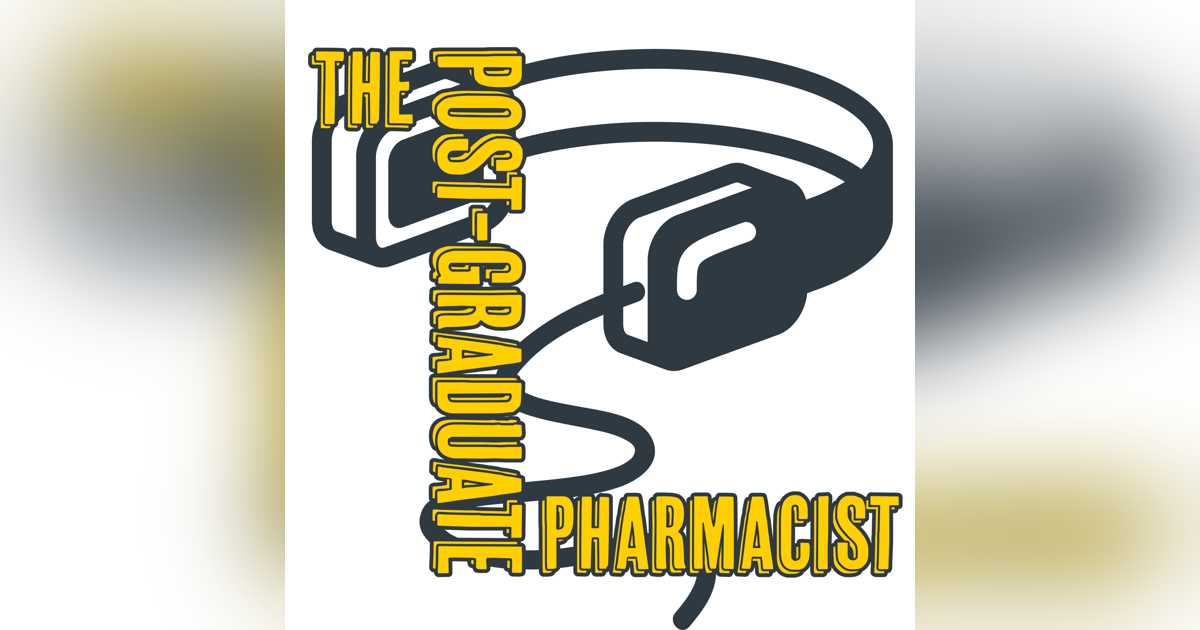PGP Fundamentals: Creating a Post-Graduate Training Timeline

Dr. Steuber and Dr. Smithgall talk about creating a time-line for post-graduate application.
It’s time to create your personalized time-line in this episode of our PGP Fundamentals Series.
In this episode we will review what to do leading up to your APPEs followed by what to do During APPEs.
Key take-aways about time-lines:
- It's never too early to start the application process
- The Fall is not too late to decide you want to do residency
- The earlier you start preparing, the less anxious you will be and the more prepared you will feel.
Breaking it down into two separate segments:
1. Prior to your APPE year
2. During your APPE year
Prior to your APPE year:
This is when you should really be thinking about how to be a standout candidate and your short and long-term career goals and how you will achieve those.
Think about post-graduate training as an option. You don’t have to settle on it now, just whether or not it’s worth looking into. If the answer is yes, then start going through the steps as if you were applying. Most of the steps will benefit you in pursuing ANY career in pharmacy, so it’s definitely not a waste of time.
Let’s break it down by year assuming you are in a 4 year program with year 1, 2, & 3, being the classroom experience and the forth year being APPE’s.
Year 1: First, take a moment and give yourself some credit for starting so early, and then take a deep breath, because there is absolutely nothing to stress about at this stage in your education. This also goes for those who didn’t even fathom Post-grad training at this stage. This is your year to get involved in organizations and really focus on setting a foundation for your academics. Don’t get overwhelmed with organizational involvement, pick 2-3 organizations to join, and try to get involved in at least 1 by helping plan an event, or applying for a low level leadership position. Start trying to form relationships with your mentors, these can be assigned or unassigned. Just take some time to talk to them, let them know how you are doing.
Year 2: If you’re in more than 2 organizations, feel free to let one go so you can focus more in your top 2. Try to get more involved, planning one or more events and applying for a leadership position. Start making a plan with your mentors to get scholarship or research, ask them what they are working on and if you can help. Don’t let academics plummet, but at the same time the second year can sometimes be more difficult and it’s ok to not perform as well as your first year. Think about applying for a summer internship or working 1-2 weekends a month if your academics can handle it. Work experience is wonderful to have.
Year 3: This is your last chance to really focus on leadership and service to an organization. If you don’t have a research or scholarly project, try to establish one here. You’ll want to present a poster or or have something of substance from your work by this year or by Fall of your APPEs, 4th year. Try to get a mock interview done with either career services or with one of your faculty. It’s been a long time since then.
Check out Episode 8 about completing Research as part of your post-graduate training pursuits.
During your APPE year:
SUMMER:
- Keep track of significant moments and jot them down to use later when thinking of answers to situational questions. Here's a source of some of the questions you may get on residency interviews.
- Start securing reference writers by asking "will you be willing to write me a positive letter of reference" during your end evaluation or sometime towards the end of the rotation. Don't be shy, ask them all, they should hopefully be honest and tell you if they would write you one.
- Evaluate programs: We recommend scheduling a re-occurring time, 1-2 hours a week and putting it on your calendar where you can work on application materials and review potential programs
- Update your CV
- Review your draft LOI and update it with general verbiage
FALL:
- Continue to track significant moments and secure reference writers
- Register for showcases (see our episode on showcases)
- Continue evaluating programs
- Have someone review your CV and LOI
- Determine your financial capabilities going into application season
- Create a PhORCAS account
- Start building your PhORCAS profile. YES you need to copy everything from your CV into the fields on PhORCAS
- Consider Mock interview prep
December:
- Think about attending ASHP Midyear.
- Requests Transcripts
- Send reference writers PhORCAS applications and communicate your plans to them
- DON"T MISS DEADLINES FOR APPLICATIONS
January- February: This is general interview season
- Continue to practice interview skills
- Discuss your plans with preceptors, keep good communication with them
Follow the schedule posted on the Match site for deadlines pertaining to the Match.
Check out our website and sign-up to join the SASO (separate and stand out) squad. Check out our blog. If you like the show, support us by telling your friends or colleagues about it. You can also support us by clicking the coffee button on the website and buying us a cup of coffee or getting yourself some of our premium merch.
Follow us on twitter @PGPharmacist or on Facebook, Instagram, or LinkedIn @ThePostGraduatePharmacist. What questions did we not answer? What did you think of the show?
Music | "Sweet" by LiQWYD
Watch: https://youtu.be/eIYlaVPdNYM
License: https://www.liqwydmusic.com/how-to-use
Download/Stream: https://hypeddit.com/link/un7fp7











